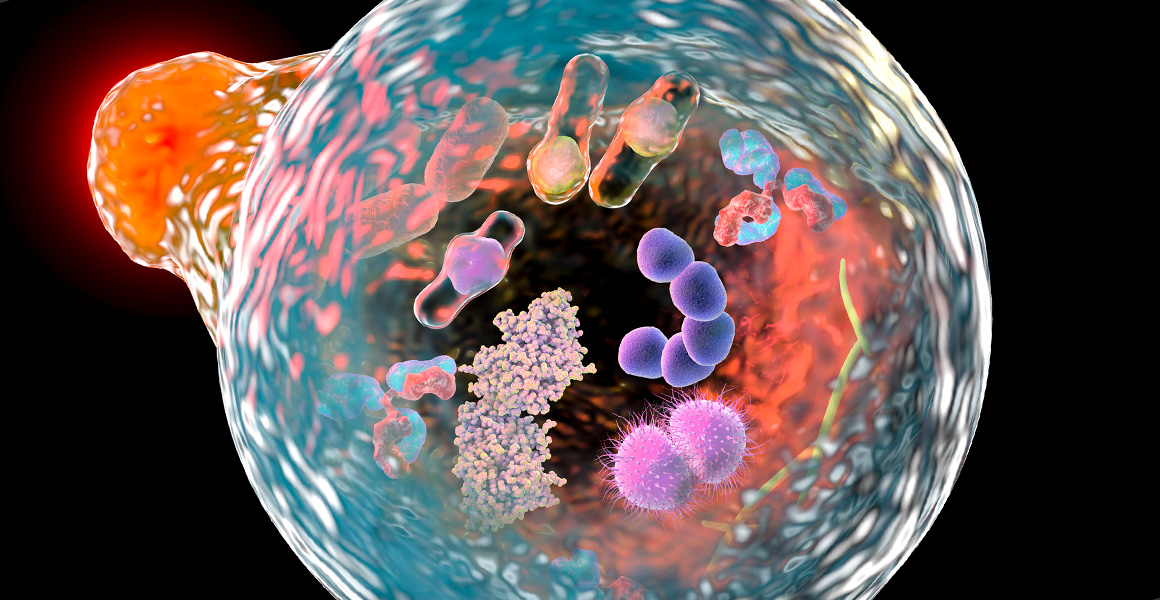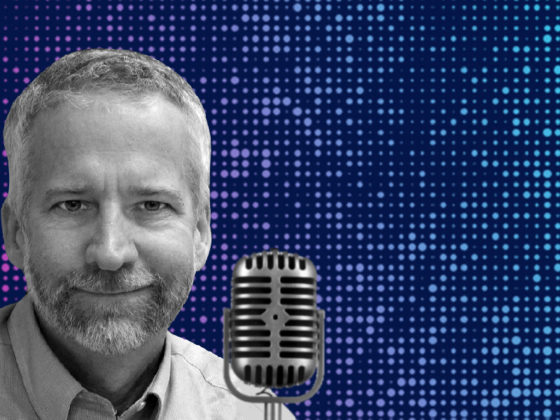Autophagy (aw-TOFF-uh-jee) is one of the hoped-for outcomes of intermittent fasting. What is it? What gets it going? Does IF turn on autophagy in humans?
What is Autophagy?
The roots of the word “autophagy” mean “self-eating.” That doesn’t sound like a good thing. Ourobouros, the self-eating dragon in this sketch by Theodoros Pelecanos, doesn’t look particularly happy, but might be able to get around with a bit of walk ‘n’ roll.

In humans (and biology in general), autophagy means recycling. A cell can select some of its own parts for digestion and send them to the recycle bin. Cells use protein machines called enzymes for a lot of jobs. One of those jobs is to break things apart. During autophagy, the cell attaches a packet of digestive enzymes to its recycle bin. The enzymes break the stuff in the bin into their basic parts. The cell can then use the parts to build whatever it needs, such as new structures or enzymes.
Autophagy takes center stage when a cell is starving for nutrients. The cell breaks down some of its parts and uses them as fuel to provide the energy it needs to survive.
If the cell survives until nutrients are available again, it can rebuild the parts it recycled if it needs them.
Calorie restriction (CR) and intermittent fasting (IF) are two mild stresses that lead to longer, healthier lives in many animals tested. Researchers don’t do this kind of lifespan experiment on humans for several reasons, including:
- Lifespan experiments using human subjects would cross ethical lines.
- Humans live so long that it’d take a century or more to complete such a study.
- Humans change their diet, location, exercise habits and lifestyle many times during their lifetime.
The effect of CR and IF on non-human primates (apes, monkeys, etc.) is still sketchy. CR and IF appear to help primates stay healthy on a poor diet, but doesn’t seem to do much for animals eating a healthy diet.
CR and IF both trigger autophagy in many animals. Autophagy appears to be the thing that lets CR and IF make helpful, life-extending changes in cells. The autophagy recycling system isn’t perfect, though. As an organism ages, its autophagy systems become less effective. Even without CR or IF, autophagy is important for health—if a person has a genetic problem in their autophagy system, it will often lead to a long-term disease.
Scientists know a lot about how cells work. If you consider that the mysteries of DNA only started unraveling (so to speak) 66 years ago, knowing as much as we do is solid progress. There’s still a lot to learn about autophagy, though. Let’s take a look at what we do know.
What Gets Autophagy Going?
Some autophagy, called basic or constitutive autophagy, is going on all the time in cells. Autophagy can increase when something stresses a cell—something that may threaten a cell’s survival. A virus infection, a stressful chemical environment (oxidation) and starvation are some of the stresses that can increase autophagy.
Drugs that stimulate autophagy have captured the interest of researchers, doctors and people as a potential Fountain of Youth. It’s important, though, to look to reliable sources in deciphering what we know and what we don’t know about them. There’s no drug that’s FDA-approved to increase autophagy or slow aging. Despite that, some people take prescription drugs “off-label,” meaning experimentally. Generally, the only people seeing obvious benefits from the drugs are those with autophagy-related symptoms that are worse than the drugs’ side effects. So far, no consistent anti-aging effect has been reported in humans by unbiased observers in a controlled, scientific trial of any drug.
Exercise reliably increases autophagy in rodents, but results in humans have been inconsistent (3,4). That leaves us with CR and IF as the only potential tools for turning up our own autophagy.
Does IF turn on Autophagy in Humans?
A recent study on humans led by Eric Ravussin at the Pennington Center for Biomedical Research compared how a daily IF schedule affected autophagy (and other things) in a group of people. The group was tested on two different schedules, one a few weeks after the other:
- an IF schedule with a 6-hour eating window and an 18-hour fasting period
- a more typical cycle, with a 12-hour eating window and a 12-hour fasting period
The duration of the IF schedule was brief—just 4 days—but when the participants fasted for 18+ hours daily (5), their cells used two autophagy genes more than their cells had used the genes during a typical eating schedule. The team checked a total of five autophagy genes and found no change in three of them.
Increased use of two of five genes isn’t exactly a grand slam in terms of compelling evidence. It does indicate that when the participants were on the IF schedule, their cells were more ready to use autophagy to recycle cell parts than when they were on their baseline schedule. Since the stress was rather mild and short—just an 18-hour fast for 4 days—the findings suggest that we may be able to increase cellular autophagy with a longer run of a similar mild stress, such as:
- a consistent Fast-5 or other IF schedule for weeks to months rather than a few days
- longer fasts of 24 to 72 hours
What Do You Think?
Intermittent fasting in the form of a daily appetite-correcting eating schedule like Fast-5 hasn’t been proven to increase autophagy in humans, but it seems likely that autophagy is involved in the many benefits that Fast-5ers have reported while eating on a 19/5 eating schedule.
Have you noticed any changes in your body besides weight loss? Do you look or feel younger than you did when eating on a conventional, 3-meal-per-day schedule? Please comment below or in Dr. Bert’s AC/Fast-5 Facebook Group.
- Mizushima N, Yamamoto A, Matsui M, Yoshimori T, Ohsumi Y. In vivo analysis of autophagy in response to nutrient starvation using transgenic mice expressing a fluorescent autophagosome marker. Mol Biol Cell. 2004;15(3):1101–1111. doi:10.1091/mbc.e03-09-0704
- Pierzynowska K, Gaffke L, Cyske Z, et al. Autophagy stimulation as a promising approach in treatment of neurodegenerative diseases. Metab Brain Dis. 2018;33(4):989–1008. doi:10.1007/s11011-018-0214-6
- Fritzen AM, Madsen AB, Kleinert M, et al. Regulation of autophagy in human skeletal muscle: effects of exercise, exercise training and insulin stimulation. J Physiol. 2016;594(3):745–761. doi:10.1113/JP271405
- Brandt N, Gunnarsson TP, Bangsbo J, Pilegaard H. Exercise and exercise training-induced increase in autophagy markers in human skeletal muscle. Physiol Rep. 2018;6(7):e13651. doi:10.14814/phy2.13651
- Jamshed H, Beyl RA, Della Manna DL, Yang ES, Ravussin E, Peterson CM. Early Time-Restricted Feeding Improves 24-Hour Glucose Levels and Affects Markers of the Circadian Clock, Aging, and Autophagy in Humans. Nutrients. 2019;11(6):1234. Published 2019 May 30. doi:10.3390/nu11061234



1 comment
Fast for 5 days showed autophagy kicking in plan to do 10 day fast to see results and I expect it to maximize autophagy